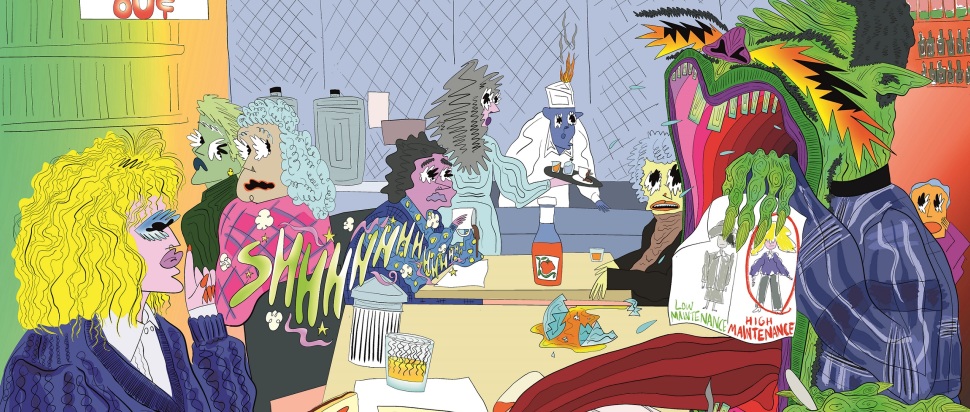ICYMI: Hannah Fairweather on When Harry Met Sally
Fresh from her Fringe debut, Edinburgh local Hannah Fairweather takes on the Nora Ephron classic, When Harry Met Sally
I think the reason I went 28 years of my life without watching When Harry Met Sally was because I’ve never been one for the genre I figured it must fall into – fantasy. I presumed it must be categorised as such or be the result of hiring a team of visually impaired casting directors given the pairing of Meg Ryan and Billy Crystal.
What I knew about the film prior to watching was fairly limited but, of course, I knew of the famous “I’ll have what she’s having” scene, and, indeed, of the basic premise of the film. I knew that the film posed the age-old question “can men and women really just be friends?”, but upon finally watching it, I found that the question on my lips was “who on Earth would want even friendship with this utterly insufferable man?”
The film didn’t explore male-female friendship and whether such a dynamic can ever be simply platonic; it couldn’t do because Harry faltered at the very first hurdle. He never actually acted as a friend to Sally. The only reason Harry is able to have a friend in Sally, despite not being one himself, is because she is incredibly patient and forgiving of his bullshit.
Throughout the film, Harry is consistently dismissive of Sally – of her personality, of her opinions and of her career. She writes for New York Magazine – as does a male friend of the pair – yet her career as a writer is dismissed as “writing about things that happen to other people” while his serves as a marker of intelligence.
Sally has everything going for her and is miles out of Harry’s league – yet despite the constant misogyny he barks at her (among countless other things, he offers up the sweeping generalisation “men don’t want to be friends with women. Men know they don’t understand women, and they don’t much care”), she responds to him with nothing but kindness – even at points when she clearly doesn’t care for him at all. The only time I disagreed with her throughout the film is when she says to Harry “you make it impossible for me to hate you.” I, for one, found that impossibly easy to do.
Harry is obnoxious and rude. He’s self-absorbed, speaking in nothing more than monologues – suggesting Crystal went method and played a stand-up comedian. He belittles Sally for not seeing the world as he does and mansplains to her why he is right and she is wrong. He sees the world in an incredibly un-nuanced, sexist way – talking of the simplistic categories he believes women fit into and how he has the right to assign them. He calls Sally “high maintenance” – nothing more than a condescending indictment of a woman who knows what she wants. He fails to see women as multidimensional human beings and is completely dismissive of their agency. When asked “What if the woman doesn’t want to have sex with you?” he says “doesn’t matter”. And yet, despite holding many opinions about everything and everyone, he fails to look introspectively – as Sally herself notes, Harry dismisses anyone who doesn’t want to sleep with him as having a character flaw.
At the beginning of the film, when Harry does indeed meet Sally, he presents himself as a tortured soul who sees through everyone else’s naivety, when in reality he is a pretentious narcissist. Harry dismisses Sally’s positive outlook while reveling in his own “dark side” – posturing himself as an incredibly deep person because he does things like skipping to the ending of a book so he knows how it ends before it starts.
I didn’t have to skip to the end to know exactly how this film ended. I knew the pair were going to end up together, and Harry was going to – after needlessly putting the person he supposedly cares for most through a sprinkle of emotional turmoil – declare his “love” for Sally. But I was mistaken – this film was not a fantasy at all, but a tale as old as time, in which another beautiful, kind, intelligent woman ends up with a mediocre man with an inflated ego. Instead of being a commentary on whether men and women can just be friends – maybe it should be seen as a comment on misogynistic men, and why we shouldn’t put up with having what she’s having.
Follow Hannah Fairweather on Twitter and TikTok @hanfairweather and on Instagram @hannahfairweather
